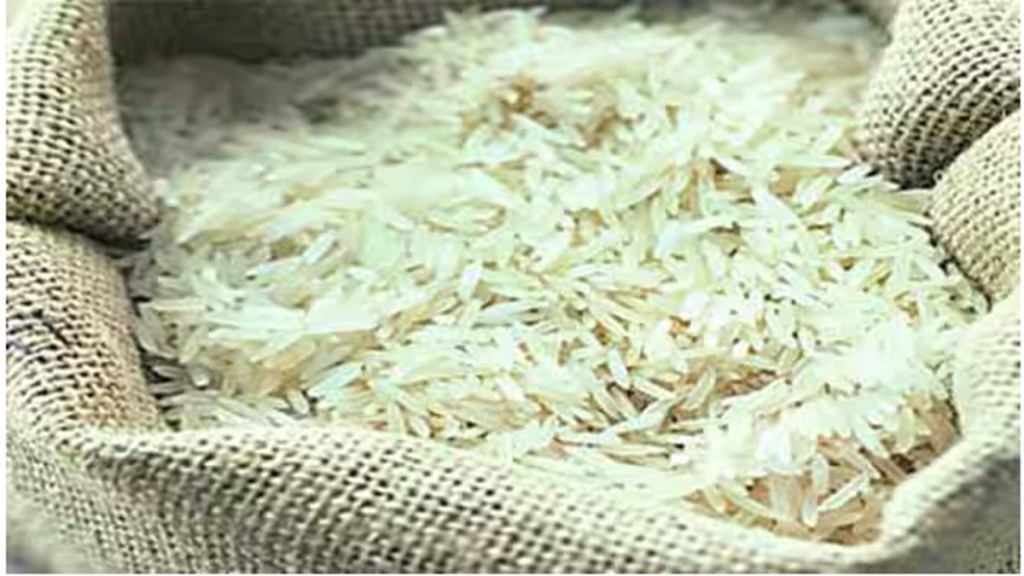Soon after the imposition of a 20% export duty on parboiled rice late on Friday, the government has halted all basmati rice shipments below $ 1200/tonne till October 15.
The reason for putting in place a minimum export price (MEP) for basmati rice and imposing an export duty on parboiled rice until mid- October, is that it would give the government time to get an estimate of the kharif rice output for 2023-24.
The series of measures taken by the government in recent months including the ban on exports of white rice export, the levy of a 40% export duty on oniona, the abolition of import duties on certain varieties of pulses and the sale of foodgrains in the open market,are aimed at ensuring adequate stocks and curbing food inflation. Food Corporation of India aims to sell 2.5 MT of rice this year in the open market to cool prices.
Food inflation rose to 10- month high of 11.51% in July driven by higher prices of vegetables, cereals and pulses.
Official sources told FE the decision to temporarily impose an MEP on shipments of aromatic rice came followed reports that non-basmati rice consignments had been sent under the ‘basmati’ and ‘parboiled’ rice category following the ban on white rice shipments last month.
Rice exports in the current fiscal so far have gone up by more than 15% to 7.33 million tonne (MT) compared to the corresponding period of the previous year.
Pointing out that the average export price of basmati rice in August has been above $ 1200/tonne, a commerce ministry official said “we have asked Agricultural and Processed Exports Development Authority (APEDA) not to register any shipment below this price,”.
A commerce ministry statement on Sunday noted: “There has been large variation in the contract price of basmati being exported with lowest contract price being $ 359/tonne in backdrop of average export price of $ 1,214/tonne during the current month,”. The ministry said it has received credible field reports regarding misclassification and illegal export of non-basmati white rice whose shipment was banned from July 20, 2023.
An official with All India Rice Exporters Association confirmed that APEDA, which monitors basmati rice shipments, has stopped providing registration –cum- allocation certificates to exporters.
Paddy transplanting is largely complete and, at present, up 4.4% year-on-year (y-o-y). While rice has been transplanted on 38.4 million hectare so far or about 96% of the normal sown area, the standing crop has been impacted by floods in several areas in Punjab and deficiency in rainfall in eastern regions.
Retail rice prices rose by 12.96% in July and had been rising in double digits since the beginning of the year. In September last year, India had imposed a ban on broken rice exports and put a 20% export tariff on the non-basmati and non-parboiled rice, a measure aimed at improving domestic supplies. India exported 1.17 MT of basmati rice valued at $ 1.29 billion in the first quarter of the current fiscal, an increase of 12.1% in terms of value compared to the same period previous year. The average value of shipment of aromatic rice in April-June (2023-24) $ 1107/tonne.
In the previous fiscal, the country exported 4.56 MT of basmati rice valued at $ 4.78 billion with an average price of % 1050/tonne.
India has been the world’s largest exporter of rice since 2012 and currently has more than 40% share in global rice trade. It ships rice to more than 100 countries. The country exported record a 22.22 MT of rice in 2022-23 valued at $ 11 billion as India could offer rice at cheaper rate than its competitors like Vietnam, Thailand and Pakistan.
Due to strong demand from Asian buyers, production disruptions last year in major producing countries like Thailand, and fears of possible adverse effects of the onset of El Nino, international rice prices have also been rising continuously since last year.
The Food Agriculture Organisation (FAO) rice price index reached 129.7 points in July 2023 on year, the highest value since September 2011.

